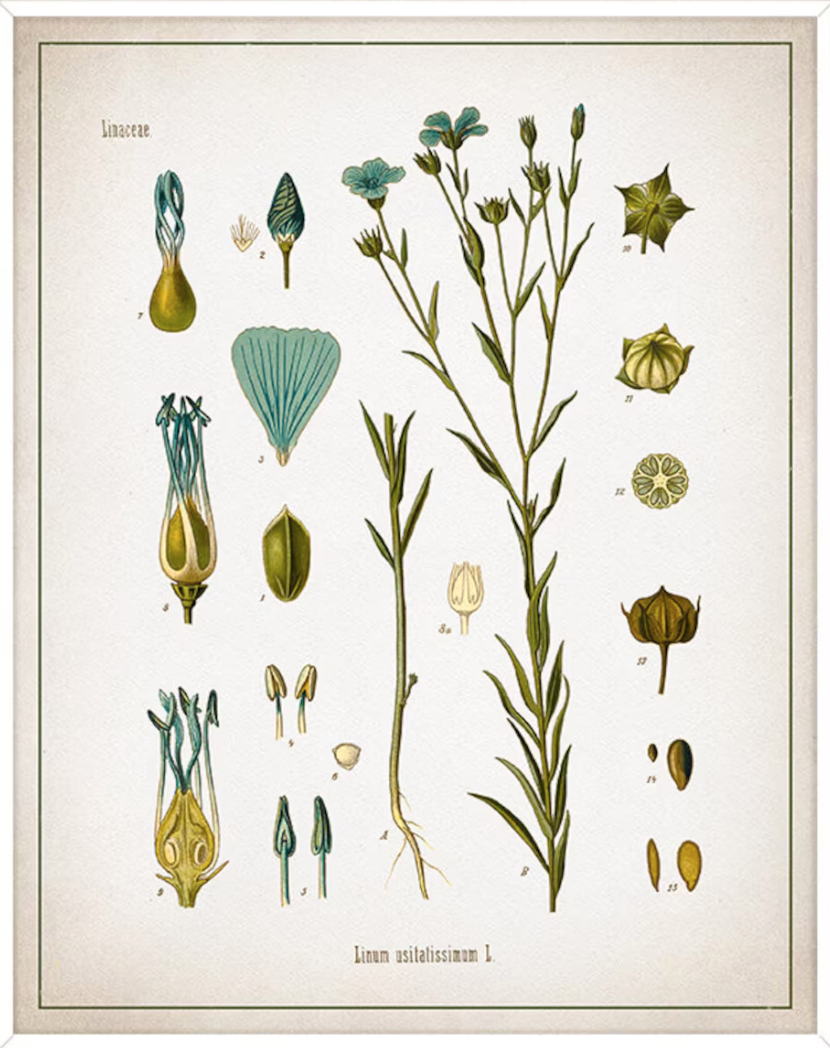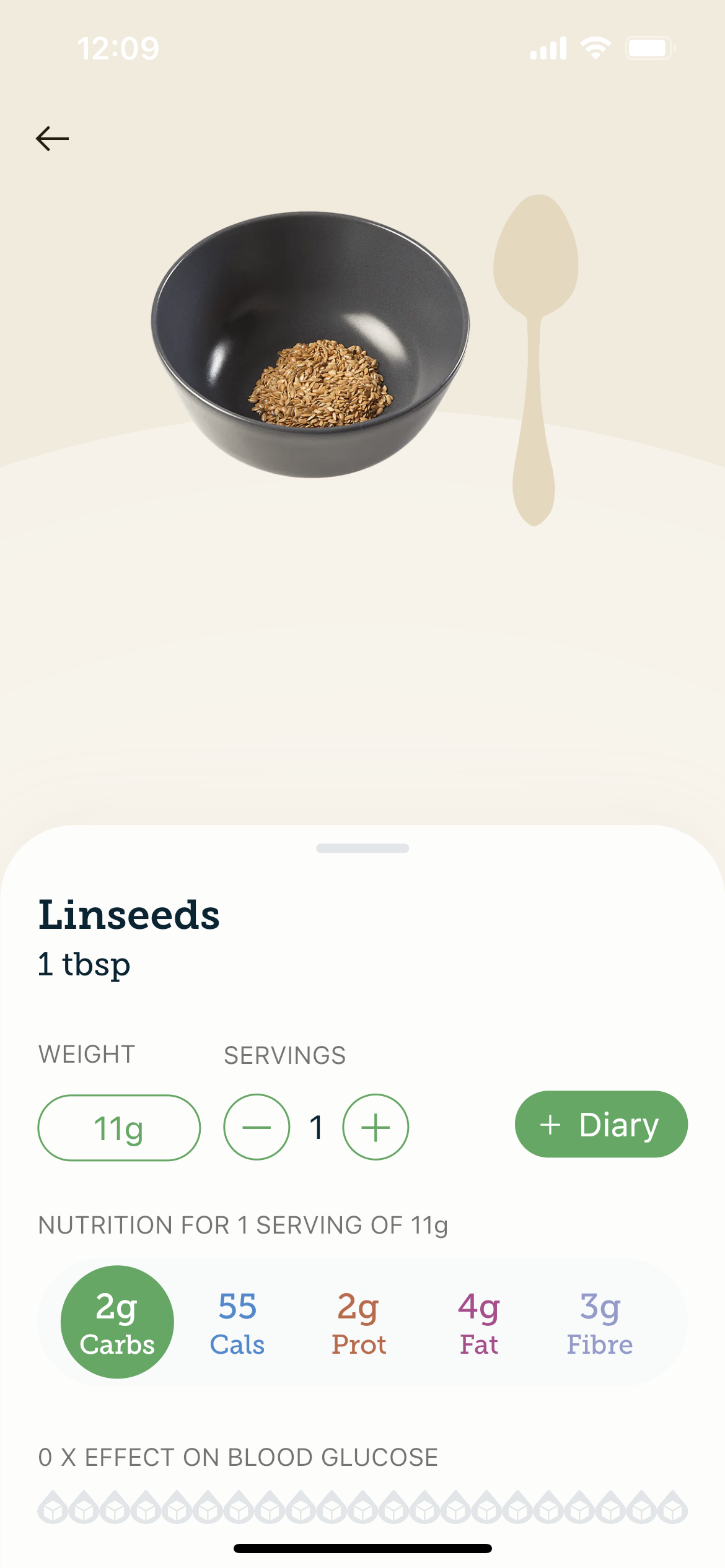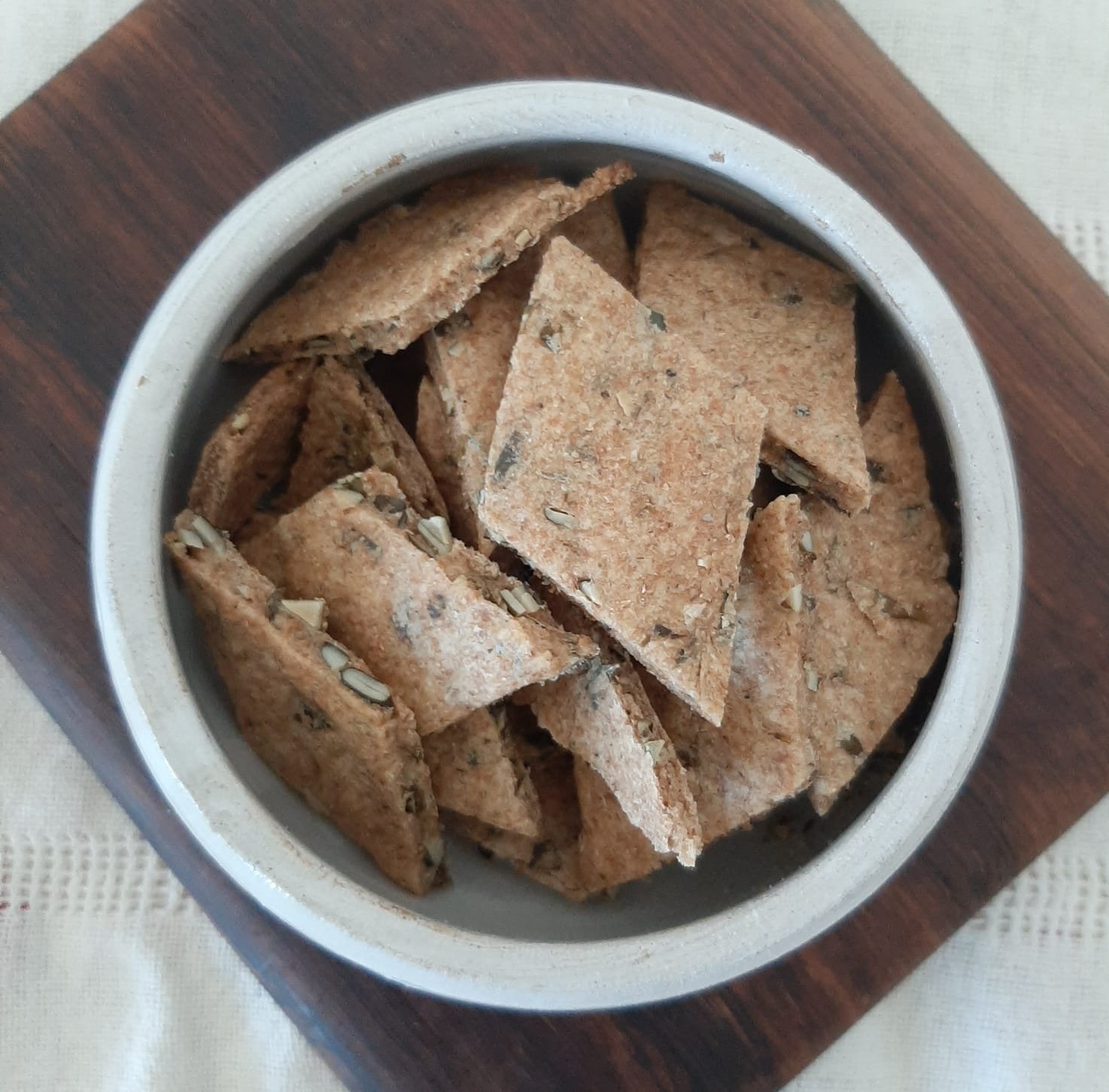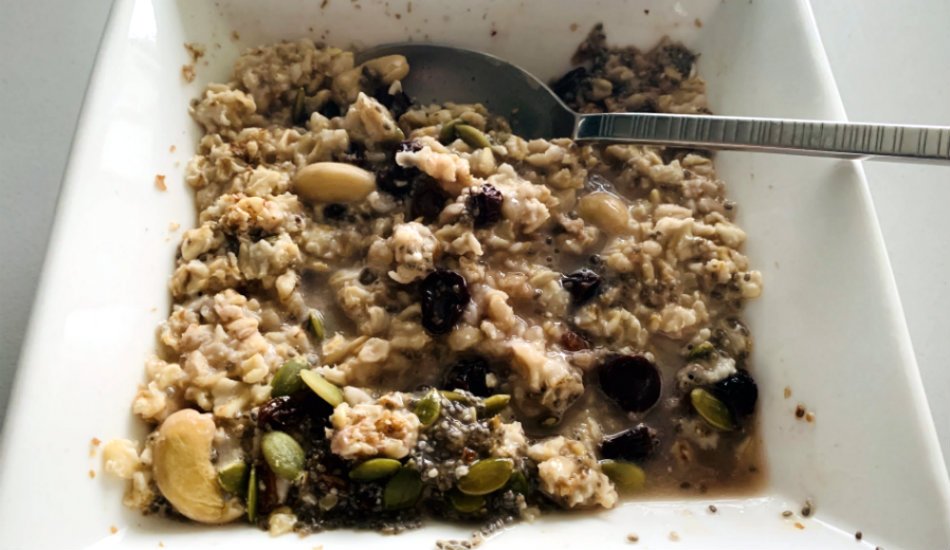The benefits of eating Linseeds
Staff member Justine, and her dietitian husband Chris Cheyette, explore the benefits of including linseeds regularly in one's diet.
To note;
In some countries linseeds are called flaxseeds.
To enable ease of digestion linseeds need to be ground or soaked (15 mins+) prior to consumption.
If starting, or increasing, your linseed intake, always increase your fluid intake to compensate for the increased fibre.
What are Linseeds?
The seeds of the Common Flax plant. These can be brown or yellow. It is the same plant that is used to make linen fabric.
What are the main nutrients in Linseeds?
Fibre - beneficial to your gut microbes and digestive health.
ALA (Alpha-Linoleic-Acid) - plant based version of omega 3. This has been linked to helping reduce blood pressure and cholesterol.
Good source of magnesium and manganese.
Image from Carbs & Cals app with permission
How much should I have?
Studies (so far) have found the best results with 2-5 tablespoons of ground linseeds per day.
What to eat it in?
Adding to recipes you already make will create a regular habit.
Smoothies
Salads
Baking - muffins / cakes / bread
Soups
Vegan egg substitute
Yogurt
Links with perimenopause and menopause
The lignans (phytoestrogens) in linseeds are converted by the gut bacteria into enterodiol and enterolactone. This has led to people extrapolating a link to alleviating some of the menopause symptoms. However, there is limited good quality research that has been carried out in this area. Also, the amount of hormones generated (in normal levels of consumption) is very low.
Some people, born female, find that including linseeds in a “Seed Cycling” programme can be beneficial for hormone balancing, this is currently anecdotal. It can take three months for the effects to be felt. Nevertheless, even if it doesn’t work for you, your fibre intake and range of nutrients consumed will have increased!
For more information on seed cycling in menstruating, peri and menopausal people born female; https://www.mariongluckclinic.com/blog/seed-cycling.html
Get Loose sells the organic seeds required for seed cycling; brown linseeds, pumpkin, sesame and sunflower.



